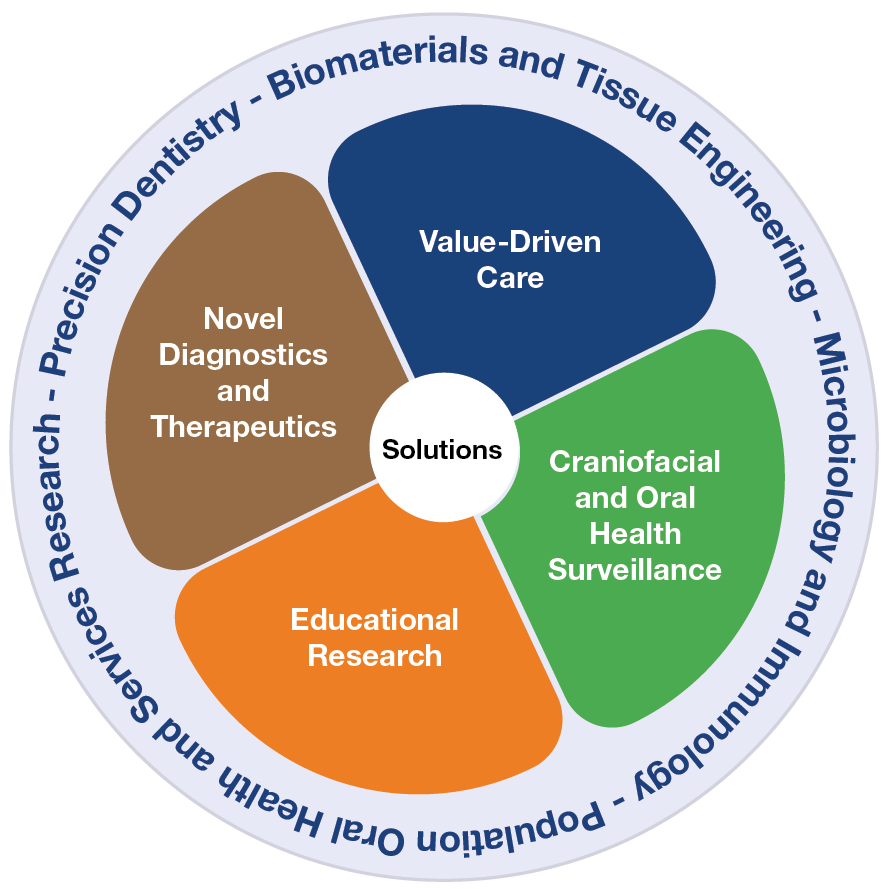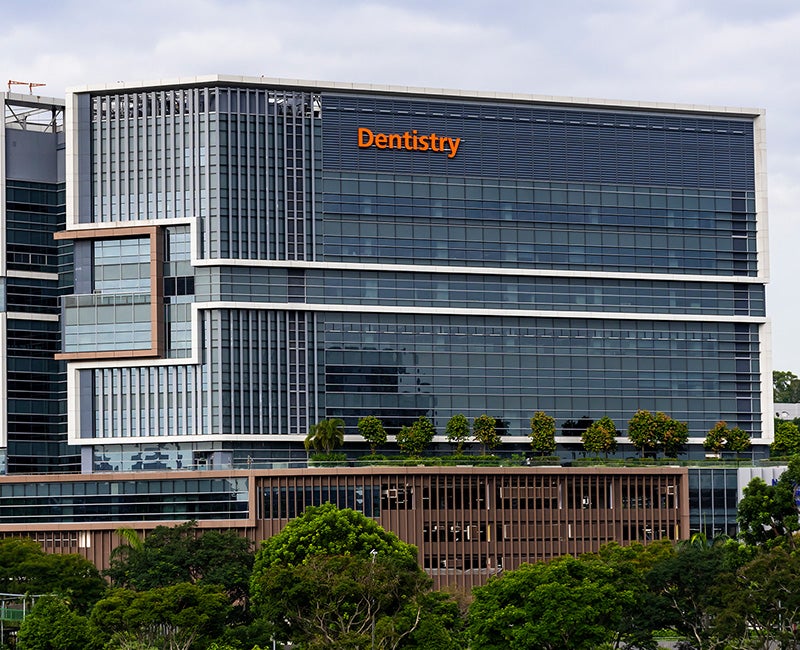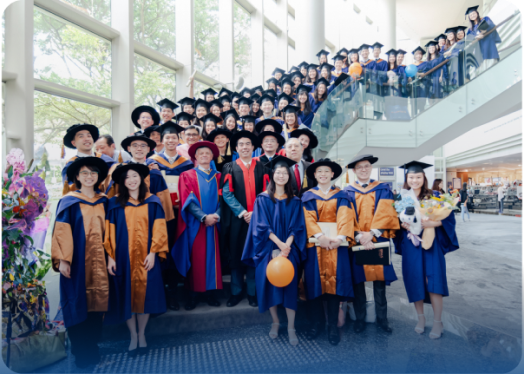- Home
- About
- Education
- Discover Education
- Undergraduate
- Prospective Students
- Student Life
- Undergraduate Overseas Elective Programme (Inbound)
- Graduate Studies
- Graduate Studies and MDS Specialist Committees
- Prospective Graduate Students
- Clinical Attachment Programme
- MDS Residency Programmes
- Endodontics
- Oral & Maxillofacial Surgery
- Orthodontics
- Paediatric Dentistry
- Periodontology
- Prosthodontics
- Graduate Diploma Courses
- Dental Implantology
- Geriatric Dentistry
- Graduate Degree (Research)
- Master of Science (MSc)
- Doctor of Philosophy (PhD)
- Lifelong Learning (CADE)
- Student Support
- Scholarships & Financial Aid
- Student Achievements
- Research
- Research Thrusts
- Graduate Degree (Research)
- Master of Science (MSc)
- Doctor of Philosophy (PhD)
- Research Groups
- Biomaterials and Tissue Engineering
- Microbiology and Immunology
- Population Oral Health and Services Research
- Precision Dentistry
- Oral Care, Health Innovations and Designs Singapore (ORCHIDS)
- Resources
- Biostatistics
- Clinical Research Unit
- Research Administration
- Research Laboratory
- Achievements
- Clinical Services
- Giving
- Alumni
- News
- Events
- Press
- Contact Us
News

Assoc Prof Stephen Hsu (left) and Mr Clement Lai analysing the data.
Starting in August 2023, NUS Dentistry in collaboration with the Alice Lee Centre for Nursing Studies, NUS Medicine, Saw Swee Hock School of Public Health, and the Department of Pharmacy, will implement a new interdisciplinary Common Curriculum. This new Common Curriculum for Healthcare Professional Education has been carefully crafted to ensure that the learning outcomes are aligned with the future vision of healthcare with a focus on preventive healthcare and facilitating ageing in place through the use of technology and analytics.
First-year students from Dentistry will join first-year students from Medicine, Pharmacy and Nursing and will be taking five specially designed courses together. They will collaborate across the four healthcare disciplines as part of their learning journey. The Common Curriculum, which is to be completed in the first two years of their candidature, will complement the existing BDS programme.
This cross-disciplinary curriculum seeks to cultivate awareness of social issues, teamwork, communication, ethics and professionalism, digital literacy, and interprofessional education in the context of health and healthcare. In addition, the Common Curriculum aims to equip the students with collaborative skills to engage in population healthcare planning, delivery and evaluation. Lessons are conducted through blended learning with a mix of online and in-person classes, which will be customised to feature group as well as individual learning sessions such as case-based discussions, fireside chats and self-reflection.
Students will also engage in interdisciplinary experiential learning through the Longitudinal Patient Experience, where teams of students from various healthcare disciplines will visit patients in their homes and living environment continually for one year. This immersive learning journey provides students with opportunities to apply the concepts learnt in class to provide holistic care for their patients, and at the same time fosters empathy and resilience in the students.
“As oral health is an important part of overall health, this Common Curriculum will allow our students to better understand oral health in the context of overall health. It will also help them recognise the impact of the broader determinants of health and oral health on patients and the population. At the same time, students from other healthcare professions will also be able to appreciate the significance of oral health. The inter-professional focus of this curriculum will equip students from different healthcare disciplines with the skills to work collaboratively with one another in the future. This will in turn facilitate the holistic care and management of patients and the population,” said Associate Professor Wong Mun Loke, Acting Dean and Vice Dean (Academic Affairs) of NUS Dentistry.
Please refer to Annexe below for more information about the Common Curriculum.
Annexe:
NUS Common Curriculum for Healthcare Professional Education
In line with the emphasis on patient-centric and relationship-based healthcare in Singapore, NUS undergraduate students studying Dentistry, Medicine, Nursing and Pharmacy will be able to gain deeper and broader knowledge and understanding of healthcare issues and challenges through a new cross-disciplinary Common Curriculum.
The new Common Curriculum for Healthcare Professional Education will apply social and behavioural determinants of health to social prescribing and planetary health; use data and digital literacy to enable population healthcare planning, delivery and evaluation; and strengthen interdisciplinary engagement as well as experiential learning.
The Common Curriculum comprises five pillars:
- Social and Behavioural Determinants of Health (Year 1)
This pillar examines the influence of social and environmental factors on important health outcomes in the life course and across vulnerable groups, as well as how these factors affect lifestyle, preventive, and curative behaviours. - Professional Practice 1: The Foundations of Health Professionalism (Year 1)
Students will learn what makes a patient-centric healthcare professional through professional identity formation and communication skills. They will also gain an understanding of the legal and ethical principles underpinning the practice and delivery of health services. - Data Literacy for Healthcare (Year 1)
This pillar features components of evidence-based practice, and covers the principles of data analysis as well as decision-making under uncertainty which are relevant to clinical practice. - Professional Practice 2: Basic Skills in Health Professionalism (Year 2)
Students will delve deeper into the ethical challenges that commonly arise in clinical practice, health systems, and research, to acquire practical skills in ethical reasoning as well as working and communicating well in multidisciplinary teams. - Digital Literacy for Healthcare (Year 2)
This pillar explores skills such as computational thinking, data science, artificial intelligence, and machine learning in the healthcare context, and more.













